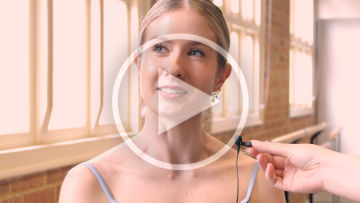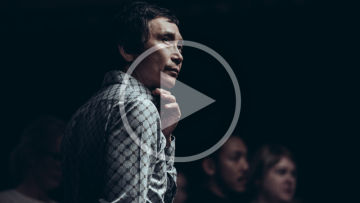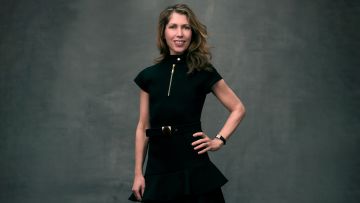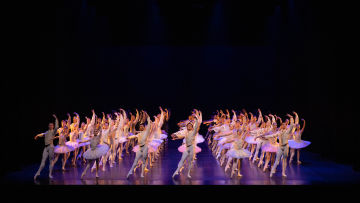Q&A with Academy Pianist and Teacher, Gary Dionysius

How important is it to have a live pianist in a ballet class? From improvising music to altering the speed at a whim, a ballet pianist draws on a broad knowledge of classical music and works closely with the dance teacher on musical interpretation, tempo, and repertoire as required. We spoke with Academy Pianist and Teacher Gary Dionysius about his 26-year career with Queensland Ballet and its Academy and the essential service he provides to classes, auditions, exams, and rehearsals.
Tell us about your musical background.
I became a ballet pianist by accident, really. I studied the piano and violin as a child, then moved from Kingaroy to Brisbane to study a degree in music. After graduating from the Queensland Conservatorium of Music I played some casual viola in the Queensland Symphony Orchestra and with the Philharmonic Orchestra, which was based in Studio 4 of the Thomas Dixon Centre – home of Queensland Ballet. I also did all sorts of things: I taught music lessons and played at a theatre restaurant on the Gold Coast, then one day I heard there was a new local ballet teacher who needed a pianist. I started playing for her three weeks before the ballet exam session, and the rest is history.
When did you join the Queensland Ballet faculty?
I met Harold Collins (former Queensland Ballet Artistic Director 1978-1997) when I was playing for open ballet classes on the Gold Coast and he was guest teaching. Our paths crossed again about four years later in Sydney, where I played for Queensland Ballet’s Company class while they were on tour. When I moved to Brisbane in 1994, I knocked on Queensland Ballet’s door and they said sure, come and do some classes. During this time, I played for the Company and the Queensland Dance School of Excellence, which is the forerunner of our Academy. I’ve been here ever since!
What is a typical day for you at the Academy?
I start with the 8am Upper School ballet class which runs for an hour and a half. The second class of the day is often totally different: it might be character dance where I play Spanish or Russian music, then pas de deux work which is different again. Then I sometimes teach a Musicality Studies lesson which I prepare for. In the afternoon I play for the Lower School students, which is different again. There is a mix of teachers, and every day is different.
What do the Musicality Studies lessons involve?
I teach the Level 3 students a short course on musicality. Dancers need to listen carefully to the music, understand the beat, and know how to use the music. This includes some music theory, and how to analyse the music. I have a selection of pieces that I’ve put into our library which could be anything from Bach to Indonesian music, or Arabian or Spanish or classical symphony, or from a ballet, and we break into groups, and they listen to the different pieces, analyse and choreograph to them. It’s about becoming a more musical dancer.
How important is a live pianist in a ballet class?
It’s essential. In an open class, the teacher is not going to use an iPod – they can’t change the tempo or call out in the middle of class ‘play a bit slower!’ A pianist can alter the speed at a whim or continue to play when there’s another group dancing. A pianist can also play from a large repertoire – maybe they’ll throw in a quirky tango, or a pop tune the class loves, but here at Academy, when a pianist is playing, the teacher can focus on the student. It’s also great training for the dancers, because when they perform in the real world they may do so with an orchestra or a band, so it’s not always going to be precisely the same. And finally, live music has something that recorded music doesn’t: atmosphere. You can just feel all those musicians in the pit playing their hearts out, and that gives you something special.
Favourite aspect of your job?
I like working with the students. Even though I’m a lot older than they are, we get along, and it can be helpful for them in a stressful exam situation because they look to you as a way of escaping: ‘Oh look, Mr Gary is over there, it’s ok!’
The main thing though, is that I can contribute artistically. I’m not just playing background music in a restaurant – not that there’s anything wrong with that, I’ve done that, but I’m using my skills. I’m able to join things together - slow down here, improvise, change into a different piece if I need to, and I try to be the orchestra for the students. And doing that is satisfying, I feel very lucky to have this job.
By Cassandra Houghton



